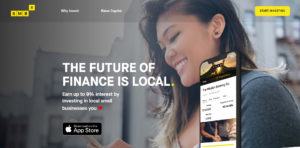Cash-flow, one of the biggest freelancing disadvantages anyone fears. And the one that can break your small business and send you back to your cubicle job.
In the past 14 years, since starting freelancing and running my web design business, I have seen many freelancers grow their business and enjoying a great life, but also people who almost went bankrupt, because of this.
Since client work is really not something to realy 100%, there will be bad months, just as you’ll have some outstanding monthly earnings, let’s try and figure out how you can maximize your freelance cash flow and grow your business.
Always ask for a deposit. Always.
You agree to work with a client. Start working and, after doing some of the job, you are being informed the client has found another idiot, ahem, freelancer and is taking his business elsewhere.
Getting said client to pay anything now it almost a lost fight, chances are they’ll just run away with your work and leave you with nothing, but regrets.
A deposit is a wonderful way for you to boost your cash flow and does something else: it makes the client think twice about finding someone else, since the client already invested money in this project.
Sure, you will have clients who leave for another provider, regardless of having paid a deposit or not, but at least in this case you are not being left with nothing, ideally, you’d have been paid for your current work.
I usually ask for 50% upfront, when creating a website.
Then we work on the ‘mockup design’, how the website will look. As soon as the desin proposal is tweaked to my clients’ liking and approved, a second and final deposit is made, before I start coding their responsive website design.
This lets me stay one step ahead, when it comes to being paid, and the client is also more likely to respect the deal, since it’s easy for them to manage the payments and also understand my work process.
Images, software licenses, domain names – the client buys them
Buying stock photos can be a costly business, if your client doesn’t want to rely on free stock image websites. And some might expect you to cover these costs.
Careful, few such images can cut your profits dramatically and it’s something you shouldn’t be covering yourself.
Just as your car repair means you will buy the parts and the service will be paid separately for their work, it works the same with our online businesses.
There are clients who expect you to purchase wordpress plugins on their behalf or images, but don’t fall into this trap. You are being paid for your expertise and services. Everything else is paid extra and not by you.
I had clients who asked me to buy the extras, since they didn’t have a paypal account or just didn’t know how to manage this, and it was OK. I invoiced them first, got the money in my account and then purchased their digital goods.
I always buy the domain names, software licenses and images under my client’s name, they register for these services and we use their email addresses. This helps them retain control, even if we stop working together in the future.
Just like with the initial deposit, don’t pay with your money until your invoices have been paid in full.
If you are offering these yourself, mark up the prices
Some companies like to provide these extras themselves, so that the client doesn’t have to wade through tens of other websites and look for what they need.
In this case you should mark up what you buy for the clients by 20-30%. This allows you to increase your profits and still help your clients find what they need hassle free.
Collect your invoices as soon as they are overdue
There’s a standard in some industries for the invoices to be paid in 30 days.
Of course the clients expects you to provide the service or products and they’ll pay in 30, 60 or, worse, 90 days.
I’ve worked with clients since 2004 and NEVER accepted anything but immediate payment for my invoices.
Yes, I can understand the client is strapped for cash and will pay me in few days. But I won’t do any work until I collect my deposit. As soon as my invoice is paid, I start the work.
The only instances I failed to follow my rules, I was scammed. Weirdly, by people I considered friends and didn’t want to ‘offend’ them with my expectations. Well, I lost money and time then so now, if you want to work with me, you will pay on time.
Try and sell ongoing retainers
Hosting plans. Social media marketing services paid in monthly. Ghostwriting services for your clients who in turn pay you on a monthly basis. Website upgrades and maintenance.
Ideally you should try to sell such services as well, not just look for new clients.
Existing ones, paying you a smaller monthly fee, are a better idea than just chasing new clients to pay for a bigger project. This way you’ll always have money coming in on a monthly basis and for your client is also a good thing to know how much to budget each month for their project.
Be frugal
The no.1 mistake most small business owners make is to start spending recklessly, as soon as they seem to have found their ground.
Don’t be the one who buys new cars and gadgets 2 months into freelancing, only to find he’s broke after 2 more months.
My best advice for any wannabe or established freelancer is to save money and stay frugal. Shop at discount stores (Costco, for instance) as much as possible, provided the quality is good, look for sales, postpone purchases, until you know for sure it’s a real ‘need’ and not a want.
If your laptop is still working, then use it. I got a record 6 years with my first laptop and routinely keep them at least 4 years. I could buy a new one on a monthly basis, but it’s not smart.
As long as something works, I’ll use it to make money and then buy something new, when I really need to.
These are just few ideas to maximize your cash flow as a small business owner / freelancer. What would you add?




